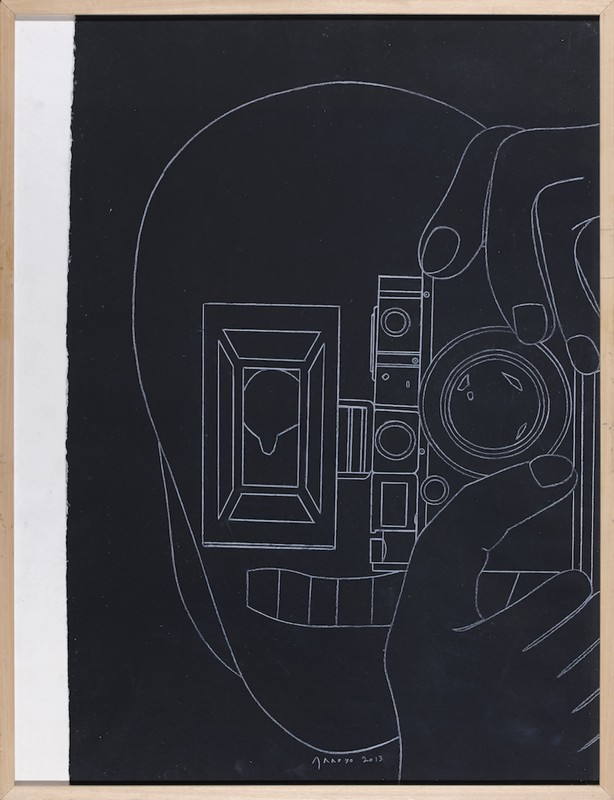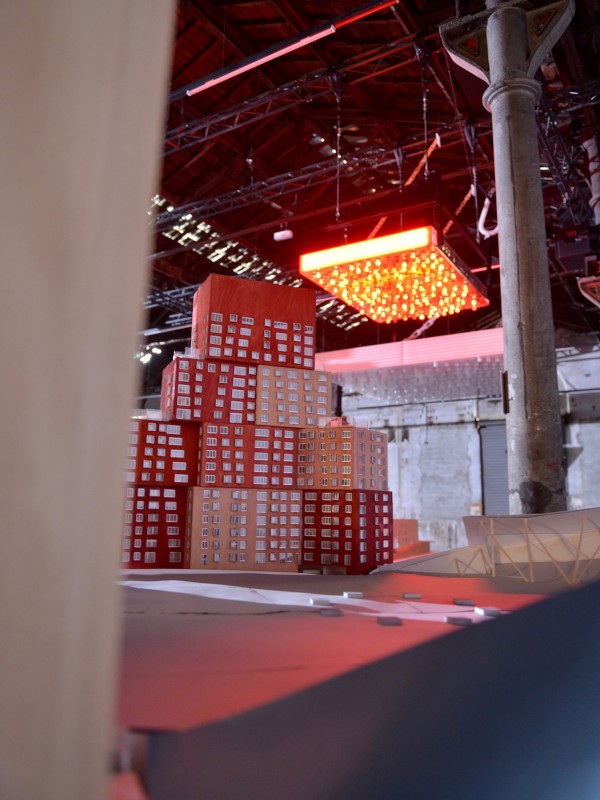Edition 2014
Exhibition presented by le Méjan
Michelangelo Pistoletto
The Third Paradise
Artiste humaniste, Michelangelo Pistoletto développe une œuvre en constante évolution, dont les Tableaux-miroirs constituent la base de la production artistique et de la réflexion théorique. Il s’est notamment rendu célèbre en participant, dans les années 1960 en Italie, à la fondation du mouvement Arte Povera. Fondé originellement sur une démarche artistique, son parcours l’a conduit à des problématiques sociétales et environnementales qu’il aborde d’une manière systémique. Le Troisième Paradis est l’expression politique d’un artiste engagé. Conçu comme un symbole pour nous guider, il se veut ouvert sur le futur d’une humanité nouvelle, réconciliant les pôles Nature et Artifice. Pour cela, l’auteur développe une vision organique de la croissance, porte un regard scientifique sur ses enjeux et compare l’organisation socio- économique avec les systèmes observés dans la nature. Sa perspective reflète ainsi une autre optique de la liberté, de l’engagement et du partage : une dimension de la politique vue comme participative et une « transformation responsable de la société à travers la fonction génératrice de l’art». Son but est essentiellement d’offrir une dynamique de changement de ce « jardin planétaire » auquel, selon son propre jugement, chacun est invité à participer librement afin d’œuvrer au vivre ensemble.
A humanist artist, Michelangelo Pistoletto has been developing a constantly evolving œuvre, of which the Mirror Paintings constitute the basis for artistic production and theoretical reflections. In Italy in the 1960s, he participated in establishing the Arte Povera movement, an activity which brought him to the public eye. Originally founded on an artistic approach, his path led him to societal and environmental issues, which he dealt with in a systematic way.
The Third Paradise is the political expression of a committed artist. Conceived as a symbol to guide us, it aims to open up to the future of a new humanity, reconciling Nature and Artifice. For this, the artist develops an organic vision of growth, brings a scientific gaze to bear on issues related to said growth, and compares socio-economic organisation with systems observed in nature. His perspective thus reflects another angle of freedom, commitment and sharing: a dimension of politics seen through a participative prism and a ‘responsible transformation of society through the generative role of art’. His aim is basically to offer a dynamic for change for this ‘planetary garden’ in which, in his own opinion, each of us is invited to freely participate so as to live together.
Jean-Paul Capitani, commissaire de l’exposition.
Exposition présentée à la chapelle du Méjan.
Jean-Paul Capitani, exhibition curator.
Exhibition venue: Chapelle du Méjan.






